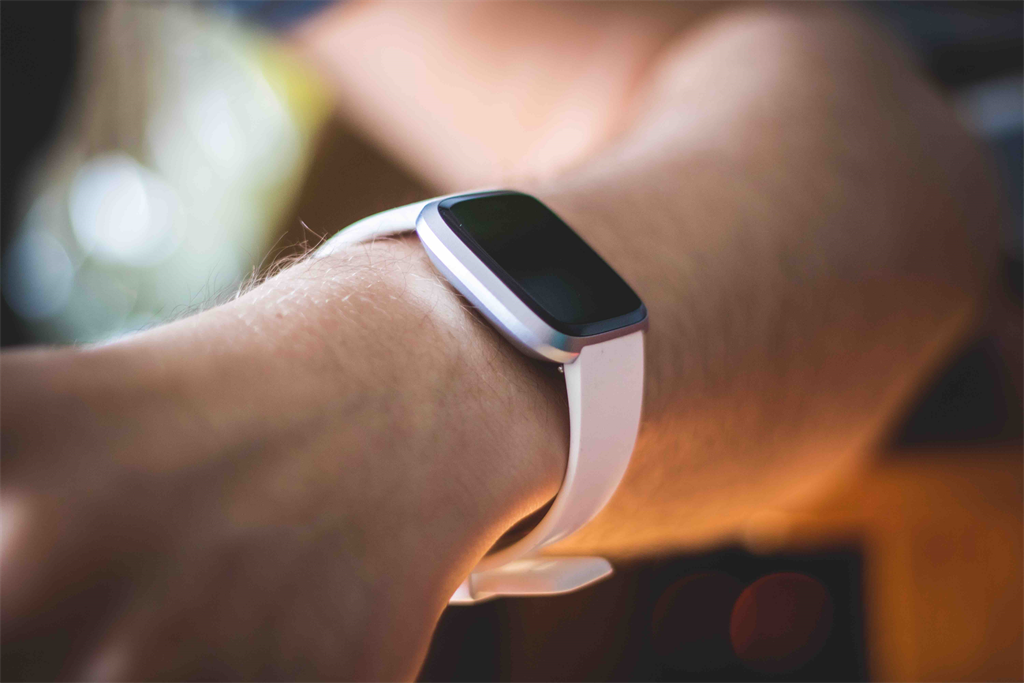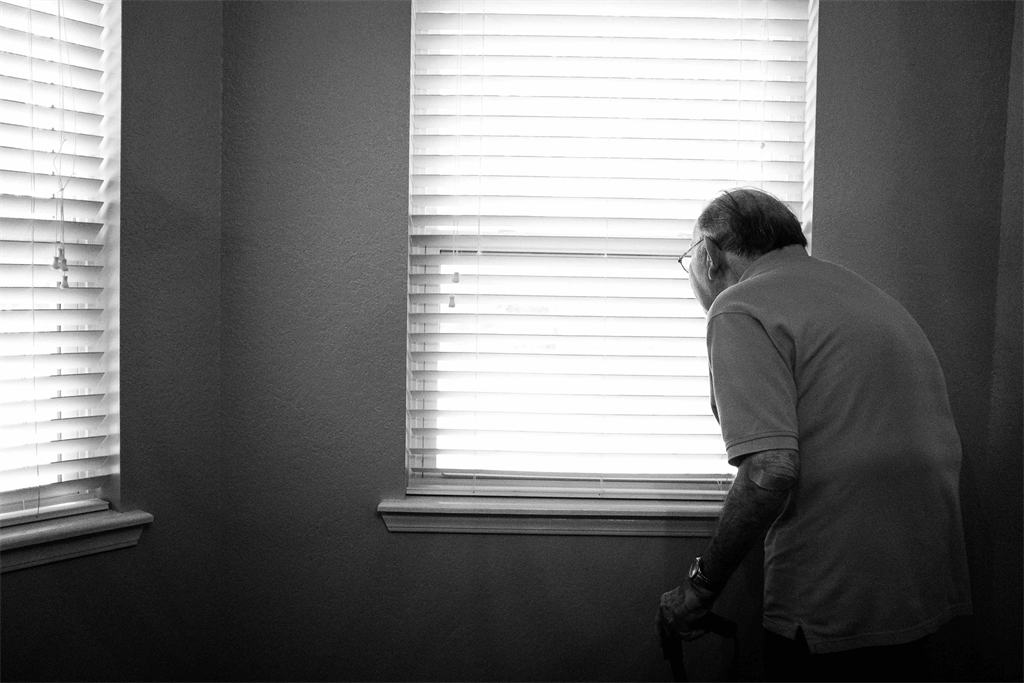The Seattle Personal Injury Blog
Posted Friday, December 6, 2019 by
Chris Thayer
 Pedestrian accidents with any kind of motorized vehicle typically end in catastrophic injuries. While many people believe that the pedestrian has the “right of way,” this is only the case if the pedestrian has not behaved in a reckless, negligent, or careless manner. Assuming that a pedestrian was not in an illegal area, crossing illegally, or acting recklessly (such as throwing items at vehicles or walking under the influence of drugs or alcohol), a pedestrian may have the right to compensation for any injuries incurred.
Pedestrian accidents with any kind of motorized vehicle typically end in catastrophic injuries. While many people believe that the pedestrian has the “right of way,” this is only the case if the pedestrian has not behaved in a reckless, negligent, or careless manner. Assuming that a pedestrian was not in an illegal area, crossing illegally, or acting recklessly (such as throwing items at vehicles or walking under the influence of drugs or alcohol), a pedestrian may have the right to compensation for any injuries incurred.
*Pedestrian Injuries*Any pedestrian accident involving a vehicle, bicycle, scooter, truck, or motorcycle can result in serious and severe injuries. Statistics show that the most common injuries sustained from pedestrian accidents by pedestrians include:
- Traumatic Brain Injuries
- Amputations
- Fractures
- Broken Bones
- Cuts, Burns and Severe Bruising
- Sprains and Soft Tissue Injuries
- Damage to the Spinal Cord causing Paralysis
- Emotional Trauma resulting in Mental Health Issues
- Death
*Steps to Take After Your Accident *As a pedestrian, if you were a victim of someone else’s negligence and suffered physical injuries, you should take certain steps following the accident to preserve your health as well as any possible legal claim you may have in the future.
- Call 911: Always call 911 immediately. Even if you do not feel your injuries are severe, you should have the police come and complete a police report. This official report will be important if you are attempting to obtain compensation from an insurance company at a later date, or attempting to file a lawsuit for your medical bills, lost wages, or pain and suffering. Always give the police officer as much detail as possible, and always request an official copy of the police report for your files.
- Seek Immediate Medical Attention: If an ambulance arrives at the scene of the accident, you should agree to be evaluated immediately. Oftentimes, people do not consider that their injuries are severe enough to require a medical examination, however, the adrenaline and shock from the accident can mask any possible serious or life-threatening injuries. If you do refuse medical treatment at the scene of the accident, consider visiting a doctor within the next 48 to 72 hours to have a complete examination regarding any internal injuries you may have suffered. If you intend to pursue a claim with the insurance company or pursue a lawsuit, you will need to have proof that you visited a qualified medical professional that evaluated your medical condition.
- Document Everything: Make sure to document as much as possible, and begin creating a file for your accident that includes your medical bills, medical treatments, the police report, witness contact information, photographs taken of the scene from your cell phone, lost wages, and even a daily log of your pain and suffering.
*Contact an Experienced Personal Injury Attorney* If you were in an accident as a pedestrian and are finding it difficult to obtain a fair and just settlement with an insurance company, you should contact an experienced personal injury attorney. Our experienced legal team at the Pivotal Law Group at 206-340-2008 can help you conduct an independent investigation, consult with accident reconstruction expert witnesses, and build a strong case on your behalf. We proudly serve the Seattle, Bellevue, Kent, Renton, Burien, Mercer Island and Issaquah areas.
Permalink to this entry
Posted Friday, November 29, 2019 by
Chris Thayer
 Multiple car accidents, or pile-ups, are some of the most catastrophic accidents that can occur on the roadways. These types of accidents typically happen after a “primary” accident has already occurred. A primary accident is the initial car accident between two or more drivers. A secondary car accident, which can occur for multiple reasons, is the accident that happens after that first accident, but are as a result of that first accident. According to the Federal Highway Administration, statistics show that 20% of all car accidents are actually classified as secondary accidents. These secondary car accidents can cause severe personal injuries, property damage, and death.
Multiple car accidents, or pile-ups, are some of the most catastrophic accidents that can occur on the roadways. These types of accidents typically happen after a “primary” accident has already occurred. A primary accident is the initial car accident between two or more drivers. A secondary car accident, which can occur for multiple reasons, is the accident that happens after that first accident, but are as a result of that first accident. According to the Federal Highway Administration, statistics show that 20% of all car accidents are actually classified as secondary accidents. These secondary car accidents can cause severe personal injuries, property damage, and death.
*Common Causes of Secondary Car Accidents *Any number of things can cause a secondary car accident. However, some of the most common causes can include:
- Distracted driving, typically due to the primary accident, and known as “rubbernecking”
- Large trucking cargo that has spilled on the roadways
- Tailgating by drivers, which then causes a multiple car pile up when they can not stop quickly enough
- Sudden stops by the flow of traffic
- Debris and wreckage in the roadway from the primary accident
- Disabled and immovable vehicles in the roadway due to the primary accident
- The swerving of drivers to avoid animals in the roadway
*Complexity of Secondary Car Accidents *The scene of most secondary car accidents is a congested roadway, full of multiple disabled vehicles. This gridlocked area often backs up the rest of the road, and emergency vehicles can find it nearly impossible to break through these packed areas and navigate the road to the accident. With serious injuries likely, the inability of these emergency vehicles to get to those in need can cause even more serious medical issues.
Statistics show that secondary car accidents usually involve several vehicles, and therefore, it is oftentimes very difficult to determine the liability in these accidents. Some of the accidents may have happened virtually simultaneously, or as a direct result of the accident in front of them. These chain reaction accidents are the most common type of secondary car accidents. In these large multi-car pile ups, oftentimes a car accident reconstruction expert must be brought in to make a determination regarding liability and fault.
*Preventing Secondary Car Accidents *Realistically, there is simply no way to prevent some accidents from occurring, however, these tips can help you possibly avoid becoming involved in a secondary accident.
- Never “rubberneck” at accidents that have already happened on the roadways.
- Always look for sudden stops, spilled cargo, disabled vehicles, swerving drivers, or other possible avoidable dangers on the roadway.
- Never text while driving, as this is a distraction in all circumstances.
*Contact an Experienced Car Accident Attorney *If you were involved in any type of car accident, including a secondary car accident, you likely are suffering from injuries that have caused you to incur medical bills and loss of wages from work. Contact our legal team at the Pivotal Law Group at 206-340-2008 or online to discuss your car accident case today. We proudly serve the Seattle, Bellevue, Kent, Renton, Burien, Mercer Island and Issaquah areas.
(image courtesy of Mark Cruz)
Permalink to this entry
Posted Friday, November 22, 2019 by
Chris Thayer
 Technology has now reached a point at which computer equipment that once took up an entire building complex now fits onto a person’s wrist. Personal fitness tracking devices are commonly used for those people attempting to engage in a healthy lifestyle by tracking their daily steps, heart rate, calorie intake, rate of speed during physical activity, and even sleep habits. These devices track physical activity in every way and can prove either extremely beneficial or detrimental to your personal injury claim in a court of law.
Technology has now reached a point at which computer equipment that once took up an entire building complex now fits onto a person’s wrist. Personal fitness tracking devices are commonly used for those people attempting to engage in a healthy lifestyle by tracking their daily steps, heart rate, calorie intake, rate of speed during physical activity, and even sleep habits. These devices track physical activity in every way and can prove either extremely beneficial or detrimental to your personal injury claim in a court of law.
*Personal Fitness Tracking Devices*A personal fitness tracking device (such as a Fitbit) is an electronic device that is worn typically on a person’s wrist. Technology has advanced so exponentially that these devices can even include the internet and a telephone. Many companies have broken into this market including Garmin, Nike, and Apple. Similar to a “black box” on an airplane, these personal fitness tracking devices can establish with certainty several details of a person’s movement throughout the day.
*Personal Injury Claims *As these personal fitness devices detail and record all information regarding the physical activity of the wearer, they can become incredibly important sources of information within a personal injury case. In fact, several cases have already been heard in courts that include as evidence personal wearable fitness tracker data. Courts have allowed the following information to be introduced as evidence:
A person was not physically present at a location they said they were.The activity levels of the person did not match the claim that they were not active.
Not only can a personal fitness device determine the level of activity of a person, but also if they were in a certain location and a given time. The court standard has always been that medical expert witnesses were used to testify in personal injury cases, however, it appears that Fitbits and other personal fitness devices are now becoming witness testimony themselves.
It is always important to remember that if you have suffered a personal injury due to someone else’s negligence and are filing a claim in court, the opposing counsel may request your personal fitness tracker data to attempt to prove that your injuries are not as serious or severe as you claim. Contacting an experienced personal injury lawyer will help you understand your rights regarding the private and personal information located on your personal fitness tracking device.
*Contact an Experienced Personal Injury Lawyer Today *If you have suffered a physical injury due to someone else’s negligence, it is possible that your personal wearable fitness tracking device could help, or possibly hurt your lawsuit. The technology that surrounds these devices is new, and visiting with an attorney can help you understand how to build your case, and your next steps. You only have a limited period of time in Washington to file your personal injury claim. For a complimentary consultation of your case, contact our legal team at the Pivotal Law Group at 206-340-2008 or online today. We proudly serve the Seattle, Bellevue, Kent, Renton, Burien, Mercer Island and Issaquah areas.
Permalink to this entry
Posted Friday, November 15, 2019 by
Chris Thayer
 If you have been injured as a passenger in a car accident, you likely have medical bills, lost wages, and pain and suffering. While you are not liable for any damages (unless you acted negligently or recklessly to intentionally distract the driver), you may be wondering how you can receive compensation for your damages, and if you can sue the driver of the vehicle in which you were a passenger. As a passenger, you have many legal options to receive compensation for your injuries.
If you have been injured as a passenger in a car accident, you likely have medical bills, lost wages, and pain and suffering. While you are not liable for any damages (unless you acted negligently or recklessly to intentionally distract the driver), you may be wondering how you can receive compensation for your damages, and if you can sue the driver of the vehicle in which you were a passenger. As a passenger, you have many legal options to receive compensation for your injuries.
*Who Can You Sue as a Passenger? * As a passenger, you should obtain information from all the parties involved in the accident and receive the accident report and all pertinent information regarding your accident. You may file a claim and receive compensation from the following:
- Your Driver. You have the right to file a claim with the insurance company of the driver of the vehicle in which you were a passenger. If that insurance company does not offer you an adequate settlement, you have the legal right to pursue compensation through a court of law. Always remember, you are attempting to receive a monetary recovery from the insurance company, not the actual driver.
- Any Other Driver Involved. You also have the right to file a claim with the insurance company of any other driver who was either partially or completely negligent that either caused or contributed to the car accident.
- Your Own Insurance Company. If you happened to be the owner of the vehicle that was in the accident, with another driver, you may be able to file a claim with your own insurance company.
*What if the Driver Has No Insurance Coverage?* If you make the determination that your driver or any of the other drivers that were either partially or completely at fault for the car accident do not carry car insurance coverage, you may still have an option to receive compensation for your injuries. Always check your own insurance coverage to see if you have opted for either “Uninsured Motorist Coverage” or “Underinsured Motorist Coverage” on your own personal car insurance. These specific provisions within a car insurance policy may provide you coverage and compensate you for your injuries, losses, and damages.
*Should You Negotiate With Insurance Companies? * As an injured passenger in a lawsuit, you will likely have to negotiate settlement offers with insurance companies. With teams of people working on their side, insurance companies are notoriously known for attempting to get victims to make statements taking the blame, recording statements to be used against them, or manipulating what victims say to indicate that their injuries are not as substantial as they truly are. Insurance companies also attempt to delay settlement payment to attempt to have a victim miss a statute of limitations deadline to file their claim in court. If you decide to negotiate with an insurance company, make sure to never let them record you, and always know that they are not working for your side.
*Contact an Experienced Accident Attorney Today * If you were injured as a passenger in a car accident, you may have many questions regarding who you are allowed to sue, how to move forward with a claim, or how to negotiate with insurance companies. Our knowledgeable car accident attorneys can help you recover the compensation you deserve for your injuries. For a complimentary consultation of your case, contact our legal team at the Pivotal Law Group at 206-340-2008 or online today.
Permalink to this entry
Posted Friday, November 8, 2019 by
Chris Thayer
 While placing a loved one in a nursing home is always a difficult decision, family members take solace in the idea that every nursing home has a moral and legal obligation to care for its residents. Two million Americans live in nursing homes or assisted living facilities, and sadly, nursing home abuse is on the rise. Learning the signs of elder abuse can help you ensure that your loved one is always safe.
While placing a loved one in a nursing home is always a difficult decision, family members take solace in the idea that every nursing home has a moral and legal obligation to care for its residents. Two million Americans live in nursing homes or assisted living facilities, and sadly, nursing home abuse is on the rise. Learning the signs of elder abuse can help you ensure that your loved one is always safe.
*Federal Law *In 1987, Congress passed the Nursing Home Reform Act. According to this federal law, nursing home residents have the right to the following:
- Right to privacy
- Appropriate physical, mental, and social services
- Free communication and participation with family, residents, and the community
- Dignity and respect
- Freedom from abuse, neglect and physical restraint
- Decision-making authority with regard to their health and finances (where appropriate)
- Ability to file a complaint without fear of retaliation
*Signs of Elder Abuse*Unfortunately, the statistics show that personal injury and abuse to elders in nursing homes and long term care facilities are underreported, widespread, and increasing. Knowing the signs of elder abuse can help you spot it in your loved ones, and hopefully, prevent any negligence on behalf of the nursing home or nursing home staff.
*Physical Changes
*Elder abuse may be present if the following physical changes are present:
- Broken bones without explanation (or fractured bones)
- Unexplained infections
- Failure to wash sheets or clothing
- Challenges to normal sleep habits
- Failure to bathe your loved one or keep them clean
- Weight Loss
- Dehydration or Malnutrition
- Bedsores
- Overmedication or Oversedation
- Bruises
- Physical markings unrelated to any illness
- Torn or ripped clothing
- Injury in or around the genital area (possible sexual abuse)
- Newly developed sexually transmitted disease
*Emotional Changes *While many seniors have dementia, drastic emotional or mental changes that occur suddenly can signal elder abuse. Acting out against family and friends could be a sign or way that an elderly loved one is trying to communicate distress without retaliation from the nursing home staff. Blaming themselves for small problems, refusing to participate in activities, fear around the staff, mental regression, or visible anger or depression can all be signs of abuse.
*Financial Changes
*Oftentimes, the family will be in charge of all finances. However, some nursing home residents will still maintain a certain amount of independence regarding their finances, spending or even their legal documents. If you notice that a last will and testament has changed, or money missing from a bank account unexpectedly, there may be a nursing staff member manipulating your elderly loved one.
*Negligent Behavior by the Nursing Home Staff*If your phone calls are going unanswered, the staff seems disorganized or secretive, your questions remain unanswered regarding living conditions or medication, or the nursing home is making it somehow challenging to visit your elderly loved one, you may be experienced warning signs of an attempt to cover up elder abuse.
*Contact an Experienced Personal Injury Attorney *Your elderly loved one deserves respect, dignity, and care. Abuse of the elderly is not only morally wrong, but it is also an illegal act, punishable by law. Your loved one may have a fading memory, and it is always important to contact an experienced attorney right away while they still remember the facts and circumstances of their abuse. Contact our legal team at the Pivotal Law Group at 206-340-2008 or online today to learn your options, and how we can help you with your nursing home abuse case for your loved one.
Permalink to this entry
 Pedestrian accidents with any kind of motorized vehicle typically end in catastrophic injuries. While many people believe that the pedestrian has the “right of way,” this is only the case if the pedestrian has not behaved in a reckless, negligent, or careless manner. Assuming that a pedestrian was not in an illegal area, crossing illegally, or acting recklessly (such as throwing items at vehicles or walking under the influence of drugs or alcohol), a pedestrian may have the right to compensation for any injuries incurred.
Pedestrian accidents with any kind of motorized vehicle typically end in catastrophic injuries. While many people believe that the pedestrian has the “right of way,” this is only the case if the pedestrian has not behaved in a reckless, negligent, or careless manner. Assuming that a pedestrian was not in an illegal area, crossing illegally, or acting recklessly (such as throwing items at vehicles or walking under the influence of drugs or alcohol), a pedestrian may have the right to compensation for any injuries incurred. 
 Multiple car accidents, or pile-ups, are some of the most catastrophic accidents that can occur on the roadways. These types of accidents typically happen after a “primary” accident has already occurred. A primary accident is the initial car accident between two or more drivers. A secondary car accident, which can occur for multiple reasons, is the accident that happens after that first accident, but are as a result of that first accident. According to the
Multiple car accidents, or pile-ups, are some of the most catastrophic accidents that can occur on the roadways. These types of accidents typically happen after a “primary” accident has already occurred. A primary accident is the initial car accident between two or more drivers. A secondary car accident, which can occur for multiple reasons, is the accident that happens after that first accident, but are as a result of that first accident. According to the  Technology has now reached a point at which computer equipment that once took up an entire building complex now fits onto a person’s wrist. Personal fitness tracking devices are commonly used for those people attempting to engage in a healthy lifestyle by tracking their daily steps, heart rate, calorie intake, rate of speed during physical activity, and even sleep habits. These devices track physical activity in every way and can prove either extremely beneficial or detrimental to your personal injury claim in a court of law.
Technology has now reached a point at which computer equipment that once took up an entire building complex now fits onto a person’s wrist. Personal fitness tracking devices are commonly used for those people attempting to engage in a healthy lifestyle by tracking their daily steps, heart rate, calorie intake, rate of speed during physical activity, and even sleep habits. These devices track physical activity in every way and can prove either extremely beneficial or detrimental to your personal injury claim in a court of law.  If you have been injured as a passenger in a car accident, you likely have medical bills, lost wages, and pain and suffering. While you are not liable for any damages (unless you acted negligently or recklessly to intentionally distract the driver), you may be wondering how you can receive compensation for your damages, and if you can sue the driver of the vehicle in which you were a passenger. As a passenger, you have many legal options to receive compensation for your injuries.
If you have been injured as a passenger in a car accident, you likely have medical bills, lost wages, and pain and suffering. While you are not liable for any damages (unless you acted negligently or recklessly to intentionally distract the driver), you may be wondering how you can receive compensation for your damages, and if you can sue the driver of the vehicle in which you were a passenger. As a passenger, you have many legal options to receive compensation for your injuries. While placing a loved one in a nursing home is always a difficult decision, family members take solace in the idea that every nursing home has a moral and
While placing a loved one in a nursing home is always a difficult decision, family members take solace in the idea that every nursing home has a moral and